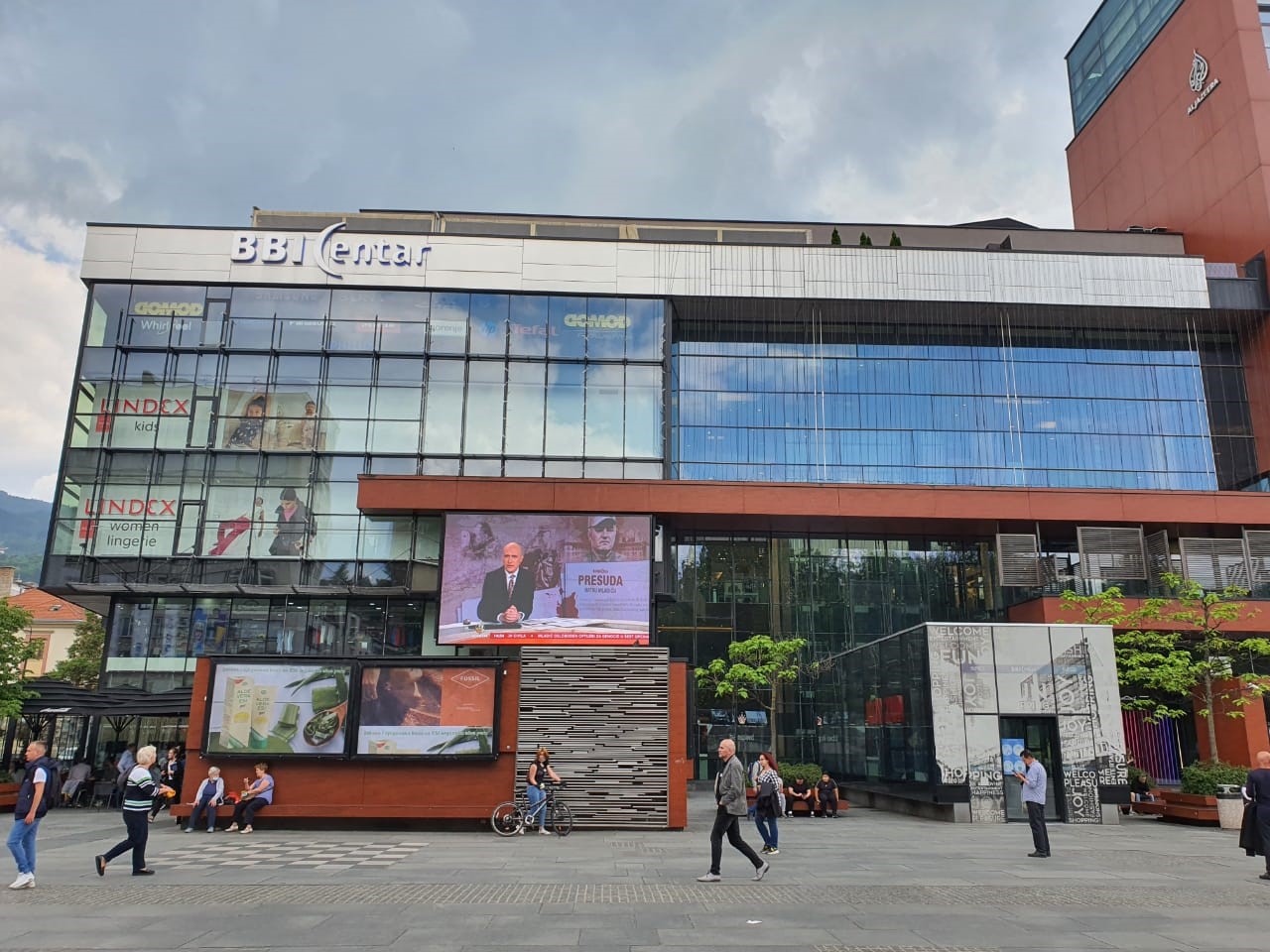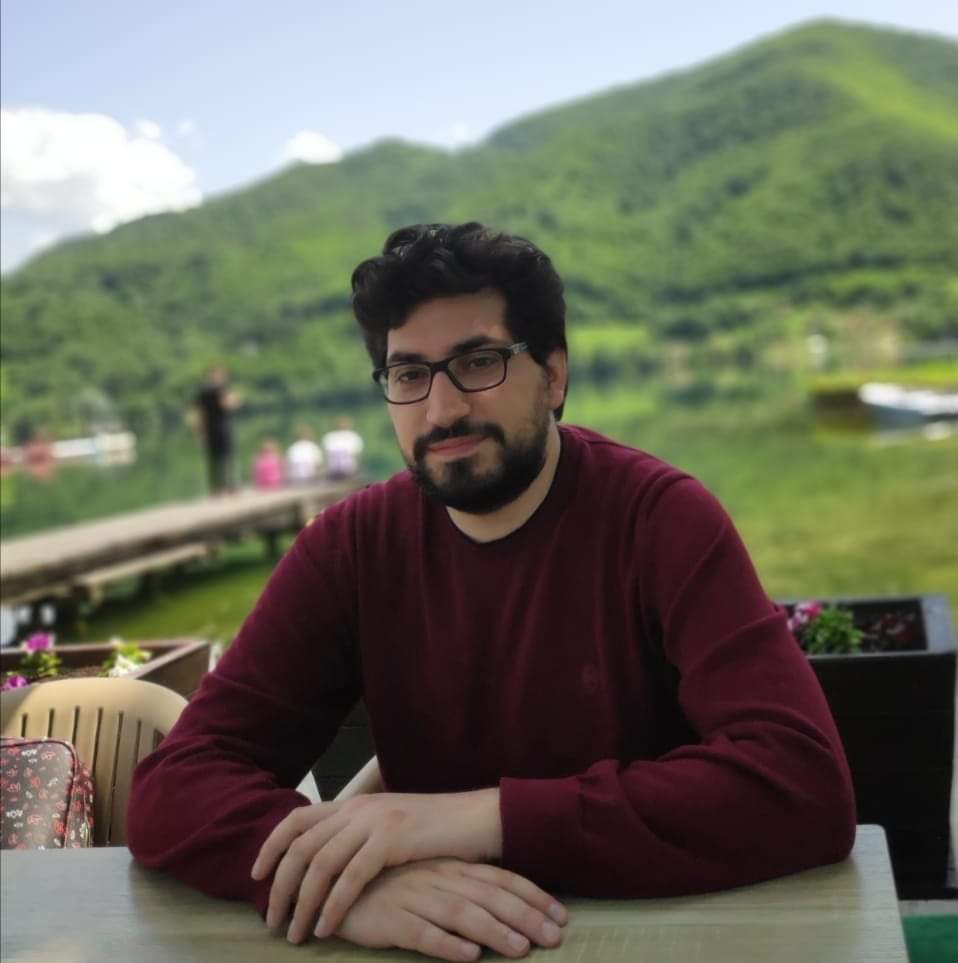أظهرت محاكمة قائد جيش صرب البوسنة، راتكو ملاديتش، في لاهاي، يوم الثلاثاء 8 حزيران/يونيو 2021، مدى تأثير السرديات المختلفة على تغطية وسائل الإعلام للحدث نفسه.
المحكمة أيدت قراراً سابقاً بالسجن المؤبد لملاديتش، الملقب بـ "سفاح البلقان"، بتهم ارتكاب جرائم إبادة جماعية وتطهير عرقي في حرب البوسنة (1992-1995)، وتحديداً في مذبحة سربرنيتسا المرتكبة في تموز/يوليو 1995، التي راح ضحيتها ما يزيد عن ثمانية آلاف شخص.
اختلاف الروايات بين البوسنيين والصرب (معهم صرب البوسنة) يعود بالأساس إلى الحروب التي نشبت في البلقان عقب تفكك يوغوسلافيا السابقة. فالصرب الذين ورثوا قوة يوغوسلافيا العسكرية، أرادوا تحقيق حلمهم القومي الكبير المتمثل في "صربيا الكبرى"، ولذلك سعوا بالحديد والنار إلى منع تفكك الدول المكونة ليوغوسلافيا وضم مزيد من الأراضي إلى صربيا. لكن المسلمين البوشناق، عملوا على جعل البوسنة والهرسك دولة مستقلة، يتعايش فيها المسلمون والصرب والكروات جنباً إلى جنب، وهو ما تحقق بشكل ما عقب انتهاء الحرب التي شهدت المجازر الأفظع في أوروبا منذ الحرب العالمية الثانية.
هذا الشرخ أثناء الحرب، لا يزال يلقي بظلاله حتى اليوم على وسائل الإعلام وتغطياتها في شتى القضايا، بدءاً من قضايا السياسة الكبرى، وليس انتهاء بمسائل بسيطة كإقامة مبنى أو تشييد شارع. فكيف الحال مع قضية كبرى تتعلق بالحرب كمحاكمة راتكو ملاديتش؟
نلقي الضوء في هذا المقال على تغطية عدد من وسائل الإعلام البوسنية والصربية لهذا الحدث "التاريخي" ذي الأهمية البالغة لسكان دول يوغوسلافيا السابقة، بهدف إبراز تأثير السرديات والخلفيات والتفسيرات على تعامل الإعلام مع الوقائع.
الحكم النهائي
لا شك أن المحاكمة نالت اهتماماً إعلامياً محلياً واسعاً، حتى إن شاشات كبيرة وضعت في عدد من الأماكن العامة في البوسنة والهرسك لنقل الوقائع لحظة بلحظة.
ومع صدور الحكم بالمؤبد على ملاديتش، احتفت وسائل الإعلام البوسنية بشكل عام بقرار المحكمة الدولية، ورصدت ردود فعل أمهات الضحايا (أمهات سربرنيتسا تحديداً)، اللواتي تجمع عدد منهن أمام الشاشات العامة، فيما توجه عدد آخر منهن إلى لاهاي قرب المحكمة، ونقلت وقائع احتفالهن وفرحهن بالقرار.
فعلى سبيل المثال، عنونت صحيفة "دنيفني أفاز" ذائعة الصيت: "مدى الحياة للجلاد"، فيما وضع موقع قناة "فيس تي في"، المملوكة لـ سناد حادجيفيزوفيتش (1)، أحد أشهر الصحفيين البوسنيين: "شاهِد دموع الجلاد بعد أن علم أنه سيموت خلف القضبان".
فالرواية البوسنية طالما دافعت عن استقلال البوسنة والهرسك وحق السكان فيها بدولة مستقلة عن صربيا، إضافة إلى إبراز الفظائع التي ارتكبت خلال الحرب تحت حجة القومية الصربية وإقامة دولة الصرب الكبرى.
موقع "كليكس"، أشهر المواقع الإخبارية في البوسنة والهرسك، رصد في مقال صباح يوم الأربعاء 9 حزيران/يونيو 2021، عناوين الصحف الصربية، في انتقاد لمواصلة صحف بلغراد نزعاتها المتطرفة.
فقد ذهبت وسائل الإعلام المؤيدة لملاديتش، الصربية الشعبوية عموماً، بعيداً من تصريحات المسؤولين الصرب أنفسهم، وركزت على الرواية القومية اليمينية بأن "ملاديش بطلا" وأن ما جرى "مؤامرة ضد الصرب" ومحاولة لجعل "سربرنيتسا أسطورة".
صحيفة "إنفورمر" الشعبوية الموالية للحكومة الصربية مثلاً، عنونت: "لتذهب كل أحكام لاهاي سدى.. ملاديتش بطل صربي إلى الأبد"، فيما كتبت صحيفة "كورير": "لا تلمسوا جرحنا الحي"!
وعلى الرغم من توثيق المجازر عبر الفيديوهات وشهادات أهالي الضحايا والتحقيقات المحلية والدولية، لا تزال البروباغندا الصربية، ذات النزعة القومية المتطرفة، التي تجعل من المسؤولين عن تلك الفظائع أبطالاً هي السائدة، وهو ما برز في تغطية وسائل الإعلام الصربية لمحاكمة ملاديتش.
القاضية المعترضة.. مديح وذم في آن
لم يكن الحكم النهائي فقط ما لاقى اهتماماً من قبل وسائل الإعلام والصحف. ففي تفاصيل المحاكمة، حظيت رئيسة دائرة الاستئناف في لاهاي، القاضية الزامبية بريسكا نيامبي، بعناية خاصة في وسائل الإعلام المحلية البوسنية بل والعالمية، وذلك لمعارضتها نقاطاً كثيرة في الحكم الصادر على ملاديتش، وتأييدها أقوال ملاديتش المتعلقة بمجزرة سربرنيتسا، والتي ادعى فيها أن إبعاد ثلاثة آلاف مسلم عن المدينة كان لـ "دواع إنسانية".
(بوسنيون يستمعون إلى القاضية الزامبية بريسكا نيامبا انتظاراً للحكم النهائي بحق ملاديتش – سراييفو 8 حزيران/يونيو 2021)
صحيفة "أوسلوبودجينيا" البوسنية الشهيرة تساءلت (مستهزئة): "من هي القاضية بريسكا ماتيمبا نيامبي التي اعتبرت فصل الرجال والصبيان المسلمين بمثابة "فحص شرعي؟"، بينما ركزت وسائل الإعلام الصربية بشكل عام على انتقاد الحكم وضرورة إعادة محاكمة ملاديتش استناداً إلى مواقف القاضية الزامبية.
فقد فتح تلفزيون صربيا العام الهواء لمحامي ملاديتش، برانكو لوكيتش، الذي قال إن القاضية لاحظت الأخطاء الكبيرة وأكد ضرورة إعادة المحاكمة من جديد. ثم ما لبث وأن ظهر نجل ملاديتش، داركو، على التلفزيون ذاته ملقياً وابلاً من المديح على نيامبي، قائلاً:"ربما تكون هذه الشجاعة الشخصية والمهنية للقاضية نيامبي غير متوقعة بالنسبة لي، فعلى الرغم من كل الضغوط والأجواء السائدة هناك، فقد انتفضت ضد مصالح الأشخاص الأقوياء الذين أسسوا هذه المحكمة وأمروا بهذه الأحكام".
عالمياً، أفردت صحيفة "الغارديان" البريطانية مقالاً كاملاً عن نيامبي قالت في مطلعه إن القاضية المعترضة "حجزت مكاناً لها في كتب التاريخ القانوني لرئاسة واحدة من أهم جلسات الاستئناف المتعلقة بالإبادة الجماعية والجرائم ضد الإنسانية، مع عدم موافقتها على كل حكم من أحكامها تقريباً". ولاقى المقال انتشاراً واسعاً على وسائل التواصل الاجتماعي في البوسنة، وجرى ترجمة مقاطع منه.
الخاتم اللغز
خاتم ملاديتش نال أيضاً اهتماماً واسعاً من كثير من وسائل الإعلام البوسنية والصربية وعلى منصات التواصل الاجتماعي، نظراً لأن ملاديتش اعتاد على لبس خاتم معين، إلا أنه استبدله خلال هذه المحاكمة، وارتدى خاتماً نُحت عليه رأس زعيم أمريكي أصلي، لتفرد له بعض الصحف والمواقع مساحة تتعلق بمعانيه والرمزية التي يشير إليها.
صحيفة "صربيان تلغراف" عنوت أن ملاديتش "أرسل رسائل إلى الأمريكيين من خلال الخاتم". حتى أن موقع "نوفوستي" ذهب بعيداً في تفسير رمزية الخاتم رابطاً إياها بما عاناه سكان الولايات المتحدة الأصليون من الهنود الحمر، وقال إنها "المعاناة نفسها التي تحل بالصرب اليوم". هذا "التحليل" يؤكد أهمية السرديات وتأثيراتها على تعامل وسائل الإعلام مع الحدث، وتضخيمه ليتماهى مع أجنداتها وسياساتها التحريرية.
تعمل البروباغندا الصربية على جعل الصرب ضحايا لسياسات ومؤامرات الدول الغربية، استنادا على تدخل الناتو في حروب البلقان، وتحديداً قصف الحلف بقيادة واشنطن العاصمة بلغراد ومناطق صربية خلال الحرب في كوسوفو عام 1999. لكن تلك البروباغندا، لا تذكر في المقابل، الفظائع التي ارتكبتها القوات الصربية في كوسوفو، بل تجد لها تبريرات تحت شعار القومية الصربية. وبالتالي، كان بارزاً إيلاء موضوع الخاتم أبعاداً (أكبر من حجمها في غالب الأحيان) تحيل إلى "مقاومة الصرب للمؤامرات الغربية وسياسات واشنطن المعادية دوماً لصربيا".
لكن، في المقابل، ذكر موقع "كليكس" البوسني، في مقال أفرده عن خاتم ملاديتش، أنه يريد الإيحاء بأنه لا يزال قائداً عسكرياً، من خلال ارتداء خاتم عليه صورة زعيم قبلي، وهي النتيجة نفسها التي خلصت إليها صحيفة "فيتشيرنيي ليست" الكرواتية في نسختها البوسنية.
ردود الفعل الدولية
وكانت أولى ردود الفعل من طرف الرئيس الأمريكي، جو بايدن، الذي سارع إلى الترحيب بالحكم قائلا: "هذا الحكم التاريخي يظهر أن من يرتكبون جرائم فظيعة سيحاسبون فعلاً على ما قاموا به".
كما صدرت ردود فعل أوروبية مؤيدة للقرار، إذ اعتبر رئيس المجلس الأوروبي، شارل ميشيل، قرار المحكمة "خطوة مهمة أخرى لتحقيق العدالة للضحايا"، فيما أكد مكتب الممثل الأعلى للسياسة الخارجية والأمنية للاتحاد الأوروبي، جوزيب بوريل، على ضرورة أن "تواصل المحاكم المحلية والدولية في البوسنة والهرسك والدول المجاورة، مهمتها في ضمان العدالة لضحايا جرائم الحرب والجرائم ضد الإنسانية والإبادة الجماعية وأسرهم".
ردود الفعل هذه لاقت احتفاء واسعاً في وسائل الإعلام البوسنية، حيث أولت صحيفة "فيتشيرنيي ليست" أكبر قدر من الاهتمام لرد فعل الرئيس الأمريكي، جو بايدن، واقتبست من كلامه عنواناً: "آمل أن يكون الحكم تعزية للضحايا".
لكن ردود الفعل المرحبة لم تلق اهتماماً في وسائل الإعلام الصربية عموماً، بل أثارت امتعاضاً لدى عدد منها، مفضلة التركيز على تصريحات المسؤولين الصرب.
-
يتمتع بشهرة واسعة في البوسنة والهرسك ودول يوغوسلافيا السابقة عموماً، إذ كان أول صحفي يعلن بدء الحرب في البوسنة، كما أنه كان آخر صحفي يجري لقاء مع الرئيس الأول لجمهورية البوسنة والهرسك علي عزت بيغوفيتش قبل وفاته عام 2003)








































